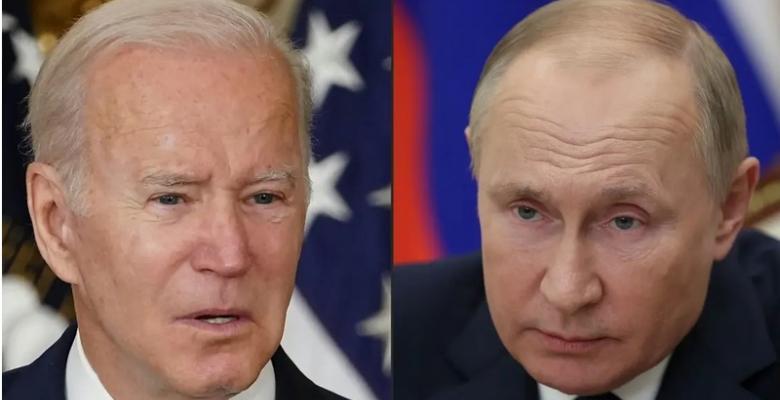U.S. Anti-Russian Policy: At the Service of Monopolies, Joe Biden

U.S. president, Joe Biden, in his eagerness to bankrupt the Russian economy, has just decreed a ban on buying oil and gas from the Eurasian republic, something that his British sidekick will follow, but at the end of this year.
And it’s just that U.S. foreign policy is related to the interests of the transnationals of the purchase and sale of energy, and not with the interests of the people.
The truth is that it pushes Ukraine and European countries into a trap, because it forces them to create a blockade on the purchase of fuel from Russia and sells them their fuel at a much higher price, in order to keep a huge profit.
A complete removal of Russian oil from global supply could mean a much bleaker outcome, the economists said.
″...The consequences of a complete shutdown of Russian oil exports of 4.3 (million barrels per day) to the U.S. and Europe would be dramatic,″ JP Morgan wrote, as the strength, size and duration of the disruption lasts , and therefore the impact on global growth, will increase.
Despite diplomatic efforts, powerful institutional and economic forces, such as Lockheed-Martin, Boeing, Raytheon Technologies, General Dynamics, Northrop Grumman, United Technologies, among many others, are eager for a new war that will provide them with profits.
In a first step in measuring the economic impact of the Ukraine invasion, connoisseurs say the U.S. will grow more slowly with higher inflation, Europe's economy will verge on recession and Russia will plunge into a two-digit dive.
CNBC's quick update, the average of 14 forecasts for U.S. economy, sees GDP rise 3.2% this year, a modest 0.3% reduction from February forecast, but a growth still above trend as the U.S. continues to recover from the coronavirus aggravated by the Omicron strain.
UNKNOWN
Specialists warned, however, that much remains unknown about how the U.S. economy will respond to an oil shock that has made crude oil prices soar rapidly above $126 a barrel and gasoline prices exceed four dollars a gallon. Most people see risks to their biased forecasts towards higher inflation and lower growth, as well as that fuel will have a price close to 200 dollars in coming months, due to sanctions against Moscow.
CNBC's quick update shows U.S. growth accelerating to 3.5% in the second quarter from 1.9% in the first. But that second-quarter estimate is 0.8% points lower than the previous survey. Therefore, the economy does not recover as strongly as inflation.
Inflation estimates are 1.7% points higher for this quarter and 1.6 for the next.
One factor that makes this price shock different from others is the amount of oil the U.S. produces with production and demand in roughly equilibrium, money is transferred from consumers to producers within the economy, and not from the U.S. abroad. That will hit individual American families and certain regions of the country harder, but it will boost profits for North American energy companies.
Oil companies, in turn, will likely drive growth, using the profits to increase drilling.
Still, some are pessimistic that the weight of higher prices will lead to a greater problem for U.S. growth. “The United States is on the verge of recessionary inflation, with energy and now food prices potentially increasing significantly more,” said Joseph Lavorgna of Natixis.
WEIGHING ERRORS
Neither Trump before nor Biden now have been able to get rid of the latent deindustrialization and dependence on Chinese and Asian labor by bringing production back home the U.S. has gathered a rent overload too high to be able to compete internationally. Its users must pay high and rising costs for education, housing, debt service, health insurance, and privatized infrastructure services.
The only way for it to sustain its international financial equilibrium is by setting monopoly prices for its arms exports, proprietary pharmaceuticals, and information technologies; in other words, spreading neoliberal economic policy around the world in ways that force other countries to rely on U.S. loans and investments.
That is not a way for national economies to grow. The alternative to the neoliberal doctrine is China's growth policies which have in fact followed the same logic by which Britain, the United States, Germany and France achieved industrial power during their early days with strong government support and social spending programs.
The United States has abandoned that industrial policy since the 1980s. It’s imposing the neoliberal policies that have deindustrialized Pinochet Chile, Thatcher’s Britain and the post-industrial former Soviet republics, the Baltic states, and Ukraine since 1991. Its highly polarized and leveraged prosperity through the debt is based on inflating real estate and security prices and the privatization of the infrastructure.
All these have led to a dead end, without glimpsing that light that it’s said can make it come out of the tunnel, despite this increasingly anti-Russian policy dictated by the monopolies.
Translated by Amilkal Labañino / CubaSí Translation Staff













Add new comment